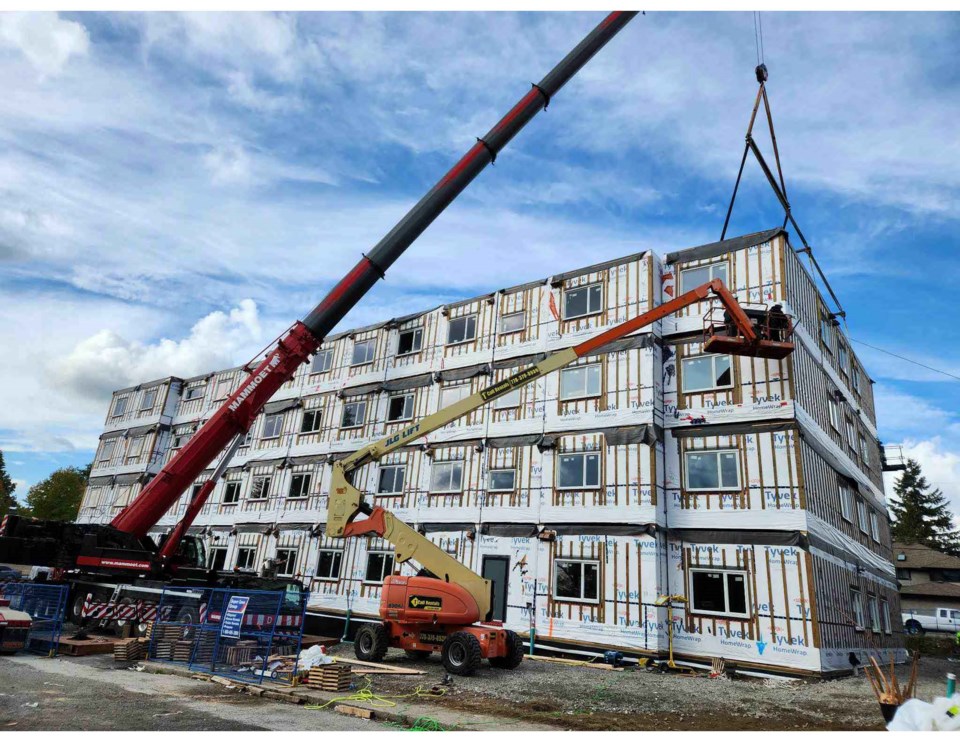A non-market housing development for women and children at risk of homelessness is nearing completion at an “unprecedented” speed, according to a Burnaby city staff report.
Last month, Burnaby city council approved $11 million in federal grant money from the Canada Mortgage and Housing Corporation (CMHC) to the Elizabeth Fry Society of Greater Vancouver (EFry), which will operate the housing development.
The development is located on the city-owned property at 8305 11th Ave.
The CMHC grant is for major cities with “levels of renters in severe housing need and of people experiencing homelessness” and requires municipalities to partner with a non-profit housing partner.
Burnaby chose EFry in July 2021 to develop and operate the housing for women and single mother-led families at risk of homelessness, according to a city report and EFry’s 2022 annual report.
The non-profit has finalized a lease agreement with the City of Burnaby and is nearing the completion of the modular housing development.
The project is expected to be completed and achieve occupancy in mid-January 2023, about 16 months after its inception.
It was delayed from its initial timeline, which would have seen occupancy in October this year, but was disrupted due to global supply chain issues, according to the staff report.
The city said EFry “has made significant progress constructing this development in an expedited timeframe,” and said called the 16-month-long development timeframe “unprecedented,” despite the delay.
The 49-unit development will include studios to three-bedrooms and have rents “set at deep subsidy levels or rent-geared-to-income for women and children at risk of homelessness,” according to the report.
The project’s total cost has come in at a little more than $19.8 million, with the city providing the remaining $8.7 million from its community bonus benefit affordable housing reserve.




